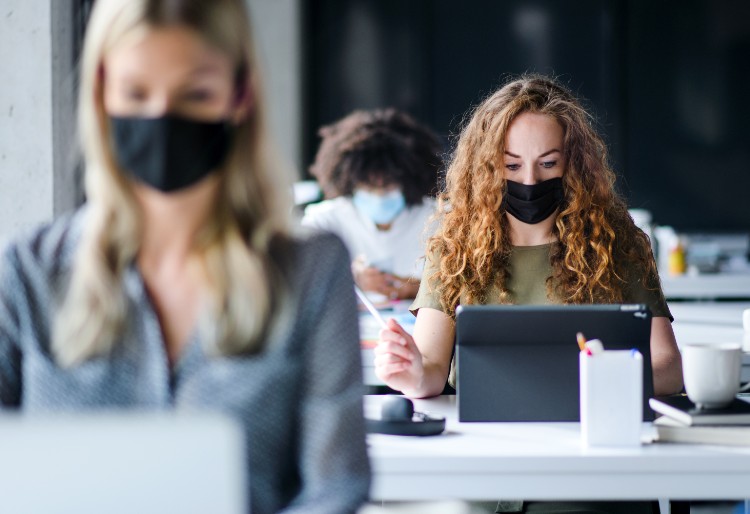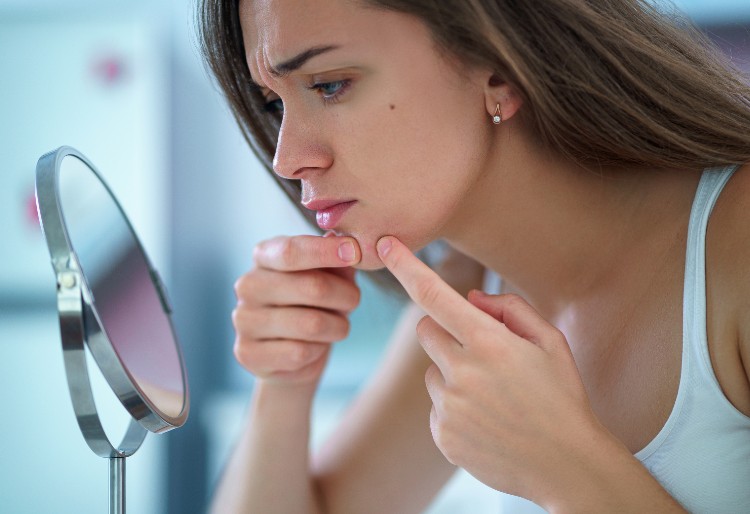Maskne: acne caused by wearing a facemask
The facemask has become another thing to remember when leaving the house, but its use can cause changes in the skin. We tell you more about maskne.
health and beauty
Share

What is maskne?
Maskne is a new skin problem being identified by many dermatologists these days, and describes acne appearing in the area that is covered when wearing a facemask: nose, mouth, chin and underneath the chin.
The friction caused by the mask, in addition to the fact that the area is covered for so long, meaning that skin gets damp and cannot breathe, are the reasons why our skin gets damaged and reacts with outbreaks of acne, redness or irritation. A situation that can be worsened if, in addition, suitable products are not used or the skin is not given special attention particularly in this area.
If for social or work-related requirements we must wear it for many hours at a time, experts recommend taking a short break in order to remove the mask for 5 or 10 minutes for every hour that we have it on, as long as we can move away to a safe place and keep the recommended distance.
If we use a fabric mask, it needs to be washed regularly to remove germs, sweat and other components

How to treat acne on the chin and affected areas?
- Facial Cleansing. Facial cleansing should be intensified: it is not necessary to use very aggressive products, but it is time to incorporate these new cleaning routines at least twice a day, in the morning and at night-time.
- Moisturising. It is now more important than ever to keep the skin well hydrated, in order to preserve the skin's protective barrier. Heavier, potentially greasier products should be reserved for night-time use. The choice of cream depends on each skin type. For oily skin, choose an oil free gel. For combination or normal skin, a lotion. And for dry skin, a creamier texture.
- Avoid aggressive products such as acids and exfoliants. If we normally use products with acids or retinols now is the time to take a break, or leave them for night-time use only, as they can promote irritation.
- Avoid makeup. It is advisable to reduce makeup use whilst wearing a facemask, as the formulations can clog pores. In conjunction with the humidity that is created underneath the mask area, it could affect the production of sebum and, consequently, lead to blocked pores.
- Choosing the right mask. In addition to following public health guidelines and respecting appropriate UNE standards of protection, we must bear in mind that if we use a fabric mask, it needs to be washed regularly to remove germs, sweat and other components that accumulate on the skin and create impurities. If, on the other hand, we are using disposable masks, we will use each mask for the recommended time only and then change it for a new one.
- If signs of this type of acne are already starting to show, it is advisable to visit a specialist who can advise us on the appropriate treatment.






